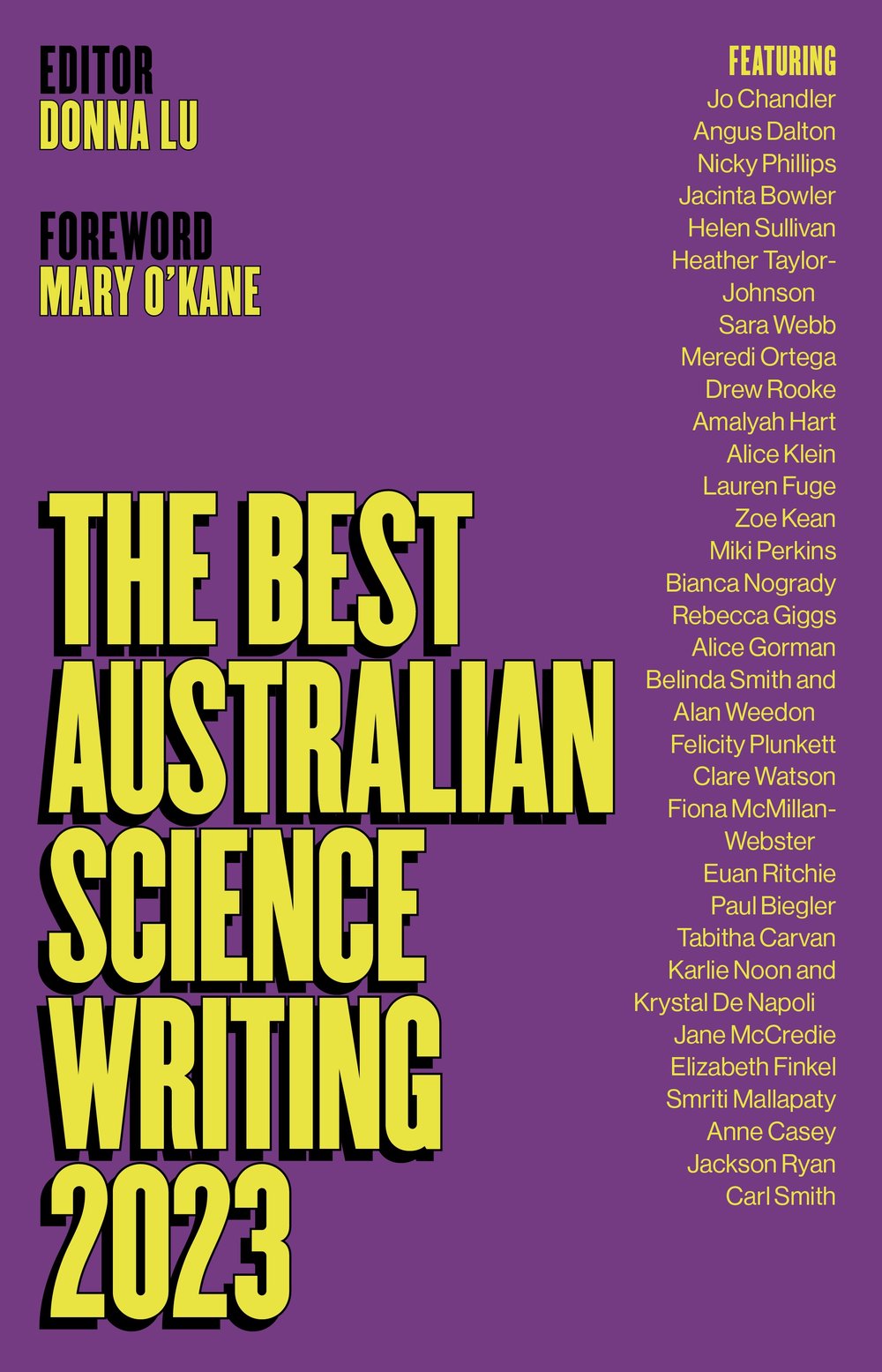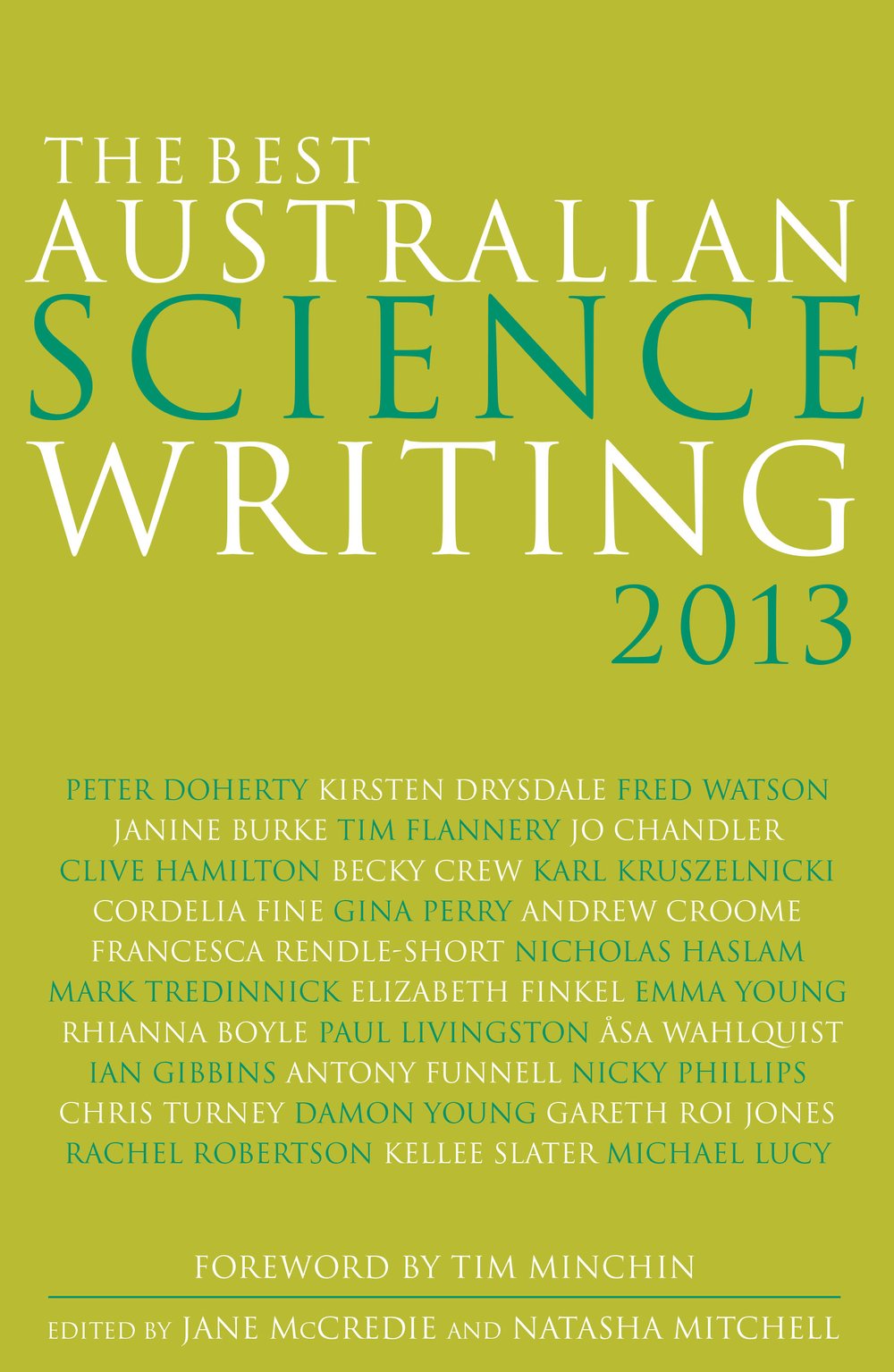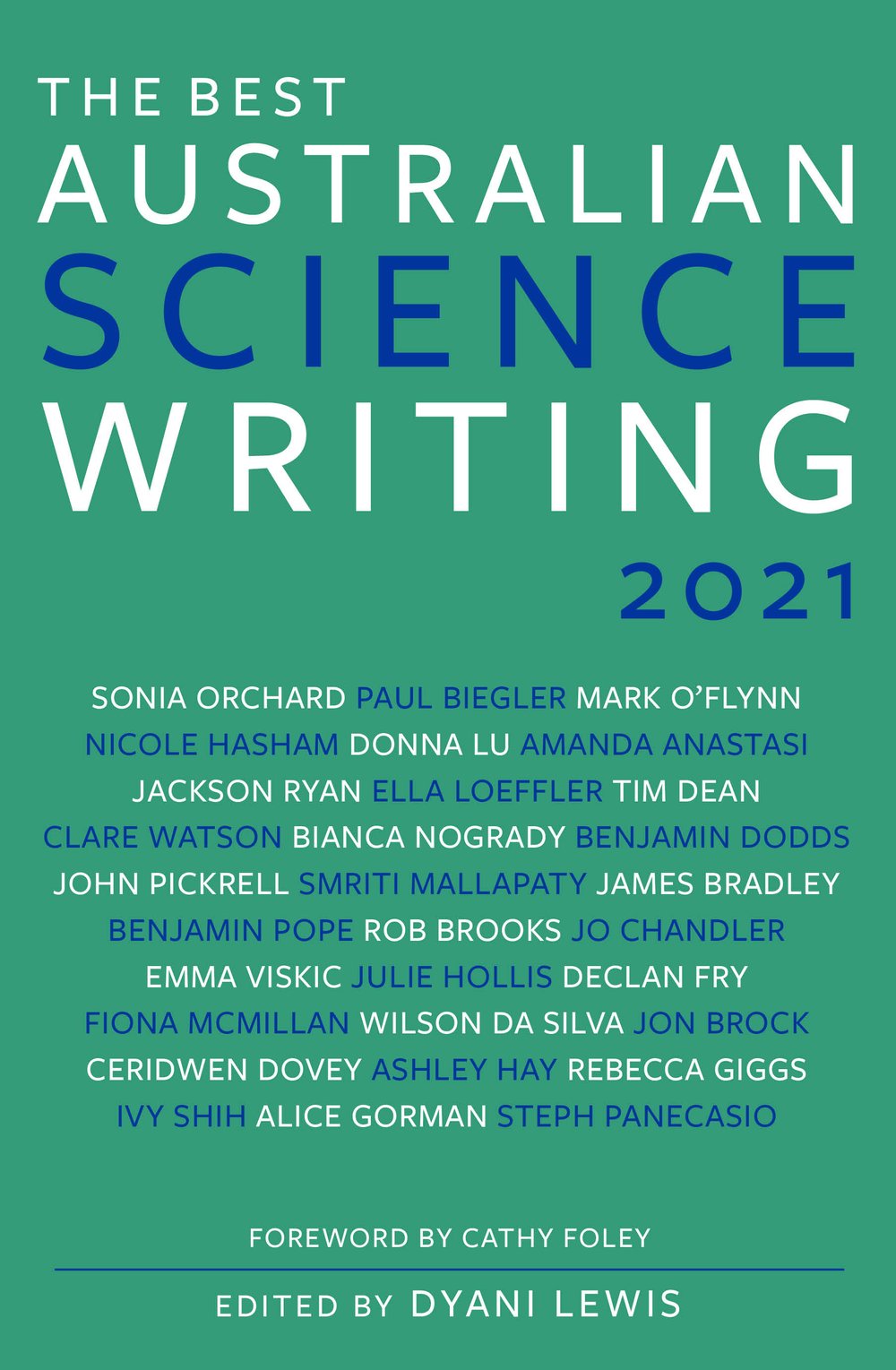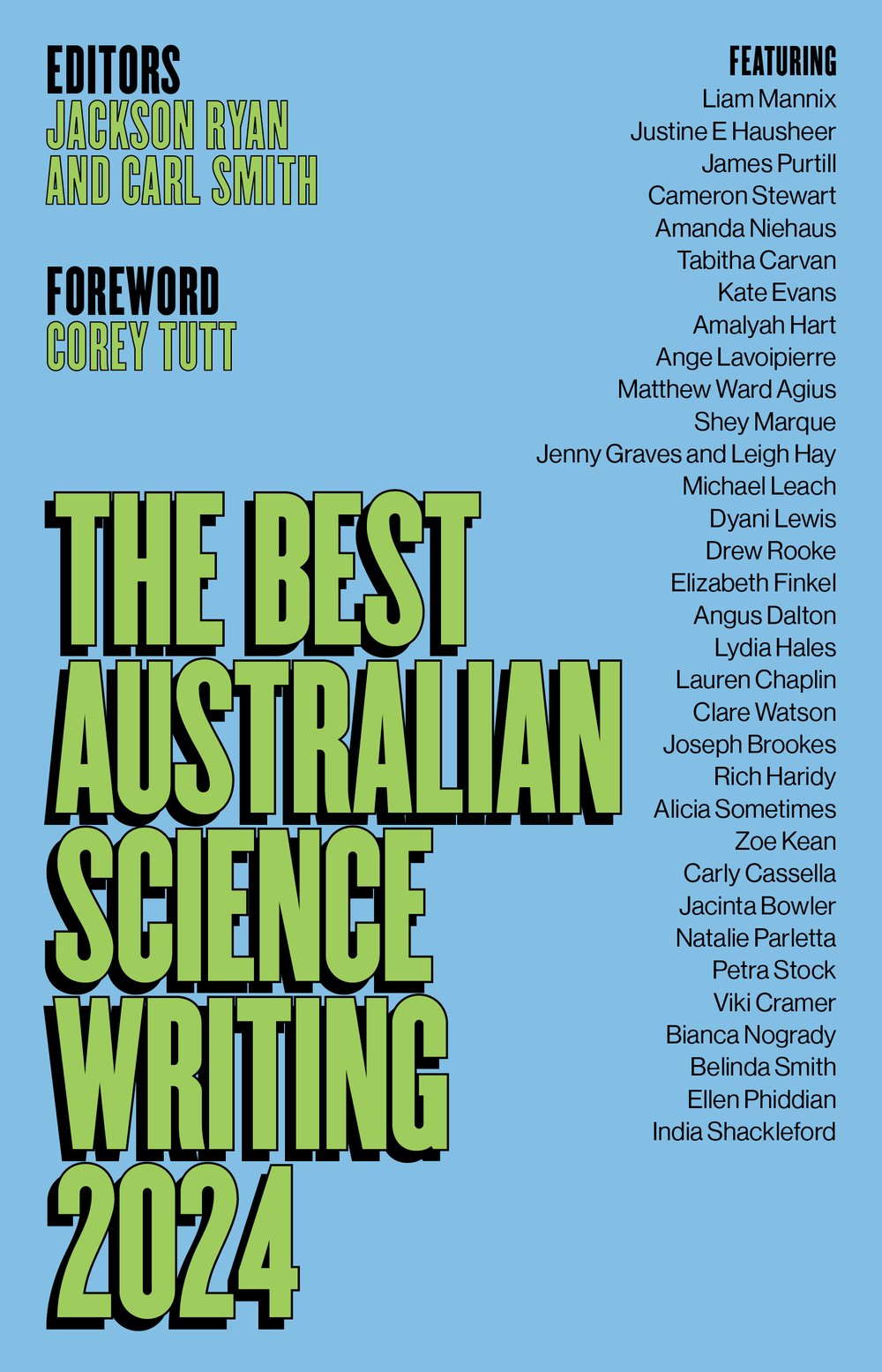The Best Australian Science Writing 2023

Should we alter animals’ DNA to save them from extinction? What secrets will old ice reveal to us about the Earth’s deep past? How is the world’s most expensive — and explosive — substance made?
Great science writing offers fascinating insights into our surrounding environments, inspires awe at the wonders of the natural world, and also seeks to understand and address some of the biggest problems of our time.
Science writing encompasses the vastness of the universe and all the diverse life forms within it. Stories abound in both the microscopic and the astronomical, from the scientists trying to reverse-engineer brain circuitry to the largest radio telescope of its kind on Earth which could help us detect alien life.
This much-loved anthology — now in its thirteenth year — selects the most thought-provoking, poignant and dazzling science stories and essays from Australian writers, poets and scientists.
With a foreword by scientist and engineer Professor Mary O’Kane AC, The Best Australian Science Writing 2023 covers another remarkable year filled with watershed moments in science.
INCLUDES THE SHORTLISTED ENTRIES FOR THE 2023 UNSW PRESS BRAGG PRIZE FOR SCIENCE WRITING, AND THE 2022 STUDENT PRIZE–WINNING ESSAY.
CONTRIBUTORS:
Jo Chandler
Angus Dalton
Nicky Phillips
Jacinta Bowler
Helen Sullivan
Heather Taylor-Johnson
Sara Webb
Meredi Ortega
Drew Rooke
Amalyah Hart
Alice Klein
Lauren Fuge
Zoe Kean
Miki Perkins
Bianca Nogrady
Rebecca Giggs
Alice Gorman
Belinda Smith and Alan Weedon
Felicity Plunkett
Clare Watson
Fiona McMillan-Webster
Euan Ritchie
Paul Biegler
Tabitha Carvan
Karlie Noon and Krystal De Napoli
Jane McCredie
Elizabeth Finkel
Smriti Mallapaty
Anne Casey
Jackson Ryan
Carl Smith

Donna Lu is Guardian Australia’s science writer. She previously worked in London as a journalist for New Scientist magazine, and her reporting has appeared in publications including The Atlantic, VICE, the Sydney Morning Herald, The Age and the Saturday Paper. Her work has been anthologised in The Best Australian Science Writing 2020 and 2021, and was shortlisted for the Bragg Prize in 2020. She holds a masters degree from the University of Cambridge.



